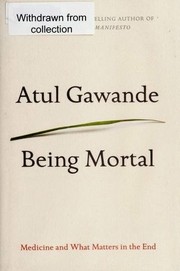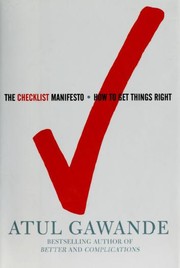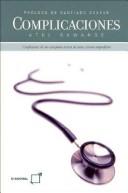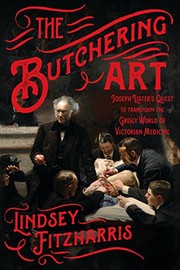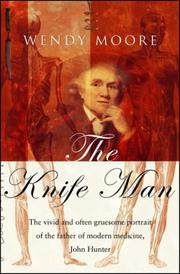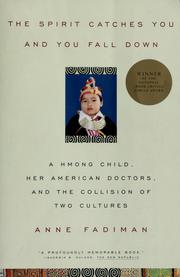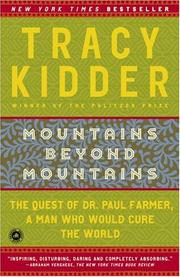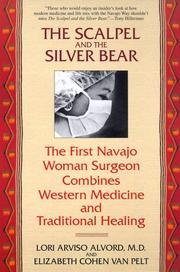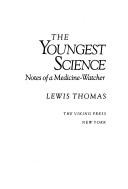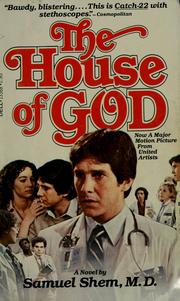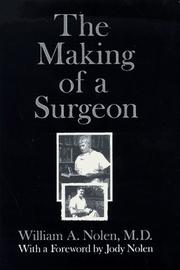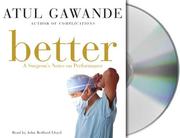Are you fascinated by the intricacies of surgical procedures and eager to delve deeper into the world of surgery? Look no further than this curated list of the 20 best books about surgery. Whether you’re a medical student, a practicing surgeon, or simply an avid reader with a keen interest in the field, these books on surgery offer invaluable insights, captivating narratives, and expert knowledge. From memoirs of renowned surgeons to in-depth explorations of surgical history and techniques, this collection covers a wide range of topics that will satisfy your curiosity and expand your understanding of the surgical world. Let’s embark on a literary journey through the fascinating realm of surgery books.
Contents
- 1 20 Best Surgery Books
- 2 When Breath Becomes Air
- 3 Being Mortal: Medicine and What Matters in the End
- 4 The Checklist Manifesto: How to Get Things Right
- 5 Complications: A Surgeon’s Notes on an Imperfect Science
- 6 Do No Harm: Stories of Life, Death, and Brain Surgery
- 7 The Emperor of All Maladies: A Biography of Cancer
- 8 The Butchering Art: Joseph Lister’s Quest to Transform the Grisly World of Victorian Medicine
- 9 The Knife Man: Blood, Body Snatching, and the Birth of Modern Surgery
- 10 The Spirit Catches You and You Fall Down
- 11 The Immortal Life of Henrietta Lacks
- 12 Mountains Beyond Mountains: The Quest of Dr. Paul Farmer, a Man Who Would Cure the World
- 13 The Man Who Touched His Own Heart: True Tales of Science, Surgery, and Mystery
- 14 The Hot Zone: The Terrifying True Story of the Origins of the Ebola Virus
- 15 The Gene: An Intimate History
- 16 The Scalpel and the Silver Bear: The First Navajo Woman Surgeon Combines Western Medicine and Traditional Healing
- 17 The Youngest Science: Notes of a Medicine-Watcher
- 18 The House of God
- 19 The Making of a Surgeon
- 20 Better: A Surgeon’s Notes on Performance
- 21 Medical Apartheid: The Dark History of Medical Experimentation on Black Americans from Colonial Times to the Present
- 22 Final Thoughts on Best Surgery Books
- 23
20 Best Surgery Books
When Breath Becomes Air
by Paul Kalanithi
When Breath Becomes Air by Paul Kalanithi is a poignant and profound memoir that explores the intersection of literature and neurosurgery. Kalanithi, a talented neurosurgeon, was diagnosed with terminal lung cancer at the peak of his medical career. This book chronicles his journey as he grapples with the meaning of life and mortality, while also reflecting on his experiences as a surgeon and a patient.
Through beautiful prose and introspective musings, Kalanithi delves into the complexities of the human experience, offering readers a raw and unflinching look at the fragility of life. His exploration of the ethical and emotional challenges faced by surgeons, as well as his own personal battle with illness, makes this book a compelling and deeply moving read.
When Breath Becomes Air is not just a book about surgery; it is a meditation on the human condition, love, and the pursuit of meaning in the face of death. Kalanithi’s eloquent and thought-provoking narrative will resonate with readers long after they have turned the final page.
Being Mortal: Medicine and What Matters in the End
by Atul Gawande
Being Mortal: Medicine and What Matters in the End by Atul Gawande is a thought-provoking exploration of modern medicine and its approach to aging and death. Gawande, a surgeon, delves into the complex and often difficult decisions that patients, families, and medical professionals face when confronting mortality. He challenges the traditional medical model that focuses solely on prolonging life, and instead advocates for a more holistic approach that prioritizes quality of life and individual preferences. Through compelling stories and insightful analysis, Gawande examines the limitations of medical interventions and the importance of considering patients’ values and desires.
This poignant and eye-opening book on surgery exposes the vulnerabilities of the healthcare system and prompts readers to contemplate their own attitudes towards aging and end-of-life care. Whether you are a medical professional, a patient, or a caregiver, Being Mortal will inspire you to reevaluate the way we approach aging and mortality in our society.
The Checklist Manifesto: How to Get Things Right
by Atul Gawande
The Checklist Manifesto by Atul Gawande is a compelling exploration of how a simple tool can have a profound impact on complex tasks. This book delves into the world of surgery, where the stakes are high and mistakes can be costly. Gawande, a surgeon himself, advocates for the use of checklists to ensure that crucial steps are not overlooked in the operating room. He shares captivating stories of how checklists have transformed the practice of surgery, leading to better outcomes and reduced errors.
However, The Checklist Manifesto is not just a book about surgery; it is a thought-provoking read for anyone looking to improve their approach to complex tasks. Gawande highlights how checklists can be applied in various fields, from aviation to construction, demonstrating their universal effectiveness. With engaging anecdotes and persuasive arguments, this book challenges the notion that expertise alone is sufficient for success and champions the power of a humble checklist in getting things right.
Complications: A Surgeon’s Notes on an Imperfect Science
by Atul Gawande
Complications: A Surgeon’s Notes on an Imperfect Science by Atul Gawande is a captivating exploration of the unpredictable nature of the medical field. In this insightful book about surgery, Gawande takes readers on a compelling journey through the world of modern medicine, showcasing the complexities and uncertainties that surgeons face on a daily basis. Through a series of gripping anecdotes and thought-provoking observations, the author delves into the intricacies of surgical procedures, the fallibility of human judgment, and the profound impact of unforeseen complications. With a blend of empathy and expertise, Gawande sheds light on the ethical dilemmas and emotional toll that come with the territory of being a surgeon. Complications is a thought-provoking and illuminating read that will leave readers with a deeper understanding of the imperfect science of surgery, and a newfound appreciation for the dedication and resilience of those who work tirelessly in the medical profession.
Do No Harm: Stories of Life, Death, and Brain Surgery
by Henry Marsh
Do No Harm: Stories of Life, Death, and Brain Surgery by Henry Marsh is a captivating memoir that provides a raw and honest insight into the world of neurosurgery. This compelling book on surgery takes readers on a journey through the highs and lows of a career in the operating room, offering a glimpse into the complexities and ethical dilemmas that surgeons face.
Henry Marsh shares poignant and deeply personal accounts of his experiences, from the exhilaration of saving a life to the heart-wrenching moments of facing the inevitable realities of death and human fallibility. His writing is both candid and compassionate, offering a rare and unflinching look at the emotional toll of working in a high-stakes and demanding profession.
Whether you’re a medical professional, a student of medicine, or simply curious about the human experience, this surgery book offers a profound and thought-provoking exploration of life, death, and the intricate nature of the brain. Do No Harm is a book about surgery that will leave a lasting impression and a newfound appreciation for the complexities of the human body and the individuals who dedicate their lives to saving others.
The Emperor of All Maladies: A Biography of Cancer
by Siddhartha Mukherjee
The Emperor of All Maladies: A Biography of Cancer by Siddhartha Mukherjee is a captivating exploration of the history, science, and human impact of cancer. Mukherjee, an oncologist, delves deep into the complex and often terrifying world of cancer, tracing its origins from ancient times to the modern era of cutting-edge treatments and research. The book immerses readers in the gripping stories of patients, doctors, and researchers who have battled this formidable disease.
With a skillful blend of medical knowledge and storytelling, Mukherjee paints a vivid picture of the relentless nature of cancer and the tireless efforts to understand and combat it. He provides a comprehensive overview of the various treatments, from surgery and radiation to chemotherapy and immunotherapy, shedding light on the triumphs and setbacks in the war against cancer.
Through meticulous research and compelling narratives, The Emperor of All Maladies offers a profound and insightful look into the past, present, and future of cancer, making it a must-read for anyone interested in the history and complexities of this pervasive disease.
The Butchering Art: Joseph Lister’s Quest to Transform the Grisly World of Victorian Medicine
by Lindsey Fitzharris
The Butchering Art by Lindsey Fitzharris is a captivating book about surgery in the Victorian era. It delves into the gruesome world of 19th-century medicine and the pioneering work of Joseph Lister, who revolutionized surgical practices. Fitzharris vividly describes the horrors of pre-Listerian surgery, where patients faced terrifyingly high mortality rates due to infections and unsanitary conditions. Through meticulous research and engaging storytelling, she brings to life the grim reality of surgical procedures in the past.
The book also explores Lister’s tireless efforts to introduce antiseptic techniques and promote cleanliness in the operating room, ultimately saving countless lives and transforming the field of surgery. The Butchering Art is a compelling blend of medical history, biography, and true crime, offering a fascinating insight into the evolution of surgical practices and the individuals who challenged the status quo. With its vivid descriptions and compelling narrative, this book is a must-read for anyone interested in the history of medicine and the remarkable strides made in the field of surgery.
The Knife Man: Blood, Body Snatching, and the Birth of Modern Surgery
by Wendy Moore
The Knife Man by Wendy Moore is a gripping and immersive book about the world of 18th-century surgery. This meticulously researched and vividly written narrative delves into the life of the infamous surgeon John Hunter, exploring his pioneering contributions to the field of anatomical research and surgery. Moore skillfully brings to life the gruesome realities of surgery in the 1700s, from the use of body snatchers to procure cadavers for dissection to the brutal and often fatal nature of medical procedures at the time.
The book provides a fascinating and sometimes shocking insight into the birth of modern surgery, as well as the ethical and moral dilemmas faced by those pushing the boundaries of medical knowledge. With its rich historical detail and compelling storytelling, The Knife Man is a must-read for anyone interested in the history of medicine and the remarkable individuals who shaped the field. This captivating surgery book will keep readers engrossed from start to finish.
The Spirit Catches You and You Fall Down
by Anne Fadiman
The Spirit Catches You and You Fall Down by Anne Fadiman is a captivating exploration of the clash between Western medicine and the Hmong culture. The book delves into the story of a Hmong child with epilepsy and the struggle her family faces in navigating the American healthcare system. Fadiman skillfully weaves together the perspectives of doctors, social workers, and the family, offering a thought-provoking look at the complexities of cross-cultural healthcare.
Throughout the narrative, Fadiman provides rich cultural context, painting a vivid picture of the Hmong people and their beliefs. The book powerfully illustrates the difficulties that arise when cultural traditions clash with modern medical practices, offering a profound and insightful examination of the challenges faced by immigrant communities in the United States.
With its compelling storytelling and deep exploration of the intersection of culture and medicine, The Spirit Catches You and You Fall Down is a must-read for anyone interested in the complexities of healthcare and the human experience.
The Immortal Life of Henrietta Lacks
by Rebecca Skloot
The Immortal Life of Henrietta Lacks by Rebecca Skloot is an extraordinary blend of scientific discovery, ethical questions, and personal narrative. This nonfiction book delves into the fascinating story of Henrietta Lacks, a poor African American woman whose cells were taken without her knowledge in 1951, and became one of the most important tools in medicine, leading to countless breakthroughs in research and technology.
Skloot skillfully weaves together the history of Henrietta’s cells, known as HeLa, with the impact they had on medicine and the lives of her family. The book explores the ethical implications of using her cells without consent, and the racial and socioeconomic disparities in healthcare. It also provides a glimpse into the world of medical research, making it a captivating read for anyone interested in science and ethics.
With its engaging storytelling and thought-provoking content, The Immortal Life of Henrietta Lacks is a must-read for anyone interested in the intersection of ethics, race, and medical advancements.
Mountains Beyond Mountains: The Quest of Dr. Paul Farmer, a Man Who Would Cure the World
by Tracy Kidder
Mountains Beyond Mountains is a captivating non-fiction book that follows the remarkable journey of Dr. Paul Farmer, a passionate and determined physician who dedicated his life to providing healthcare to the world’s most impoverished communities. Tracy Kidder vividly portrays Farmer’s tireless efforts to combat infectious diseases such as tuberculosis and AIDS in Haiti, Peru, and other developing countries. Farmer’s unconventional approach to medicine and his unwavering commitment to his patients make for an inspiring and thought-provoking read.
Kidder’s narrative skillfully weaves together Farmer’s personal story, medical mission, and the global health crisis, offering readers a profound insight into the challenges and triumphs of humanitarian work. Mountains Beyond Mountains is not just a biography; it’s a powerful testament to the impact one individual can have on the world. This book is a must-read for anyone interested in global health, social justice, or the incredible potential of the human spirit.
The Man Who Touched His Own Heart: True Tales of Science, Surgery, and Mystery
by Rob Dunn
The Man Who Touched His Own Heart: True Tales of Science, Surgery, and Mystery by Rob Dunn is a captivating exploration of the human heart and the history of cardiac surgery. This intriguing book takes readers on a journey through the evolution of our understanding of the heart, from ancient beliefs to modern scientific discoveries. Through engaging storytelling and meticulous research, Dunn delves into the lives of pioneering surgeons and the dramatic surgeries that have pushed the boundaries of what is possible in the realm of cardiac medicine.
This fascinating surgery book provides a glimpse into the intricacies of the heart, the challenges of early surgical techniques, and the groundbreaking advancements that have revolutionized the field of cardiology. Dunn’s narrative is filled with gripping anecdotes, medical mysteries, and the awe-inspiring resilience of the human heart. Whether you’re a medical enthusiast or simply curious about the marvels of the human body, The Man Who Touched His Own Heart is a must-read that will leave you spellbound by the intricacies of the heart and the remarkable feats of surgery.
The Hot Zone: The Terrifying True Story of the Origins of the Ebola Virus
by Richard Preston
The Hot Zone by Richard Preston is a gripping non-fiction book that delves into the origins and terrifying nature of the Ebola virus. The book takes readers on a heart-pounding journey through the discovery and outbreak of this deadly virus, providing a detailed account of the harrowing experiences of those who encountered it. With vivid and compelling storytelling, Preston paints a vivid picture of the deadly nature of the virus and the high-stakes efforts to contain it. The book delves into the science and history of the Ebola virus, offering a comprehensive and chilling look at its potential to cause widespread devastation. For readers with a fascination for medical mysteries and infectious diseases, The Hot Zone is a must-read. With its intense narrative and meticulous research, this book offers a fascinating, albeit terrifying, glimpse into the world of deadly viruses and the efforts to combat them.
The Gene: An Intimate History
by Siddhartha Mukherjee
The Gene: An Intimate History by Siddhartha Mukherjee is a captivating exploration of the gene, its impact on humanity, and the ethical implications of genetic research. Mukherjee, a renowned oncologist and Pulitzer Prize-winning author, takes readers on a journey through the history of genetics, from its discovery to the present day, weaving together scientific breakthroughs, personal anecdotes, and ethical dilemmas.
The book delves into the complexities of genetics, discussing the role of genes in determining our traits, the potential for genetic manipulation, and the impact of genetic diseases. Mukherjee also explores the history of eugenics and the ethical implications of gene editing, painting a thought-provoking portrait of the future of genetic research.
With his engaging storytelling and thorough research, Mukherjee provides readers with a comprehensive understanding of the gene and its profound influence on human life. Whether you’re a science enthusiast or just curious about the intricacies of genetics, The Gene is a compelling and informative read that will leave you pondering the intricacies of our genetic makeup.
by Lori Arviso Alvord and Elizabeth Cohen Van Pelt
The Scalpel and the Silver Bear is a captivating memoir of Dr. Lori Arviso Alvord, the first Navajo woman surgeon, and her unique journey of combining Western medicine with traditional Navajo healing practices. This book offers a fascinating insight into Dr. Alvord’s experiences as she navigates through the world of surgery, integrating her cultural heritage with modern medical techniques.
Readers will be drawn into her compelling narrative as she shares her struggles, triumphs, and the profound impact of her dual perspective on patient care. The Scalpel and the Silver Bear is not just a book about surgery; it is a powerful testament to the importance of cultural diversity and holistic healing in the field of medicine. Dr. Alvord’s story is an inspiring example of how embracing one’s heritage can enrich the practice of healing and bring about a deeper understanding of the human experience.
The Youngest Science: Notes of a Medicine-Watcher
by Lewis Thomas
The Youngest Science: Notes of a Medicine-Watcher by Lewis Thomas is a captivating exploration of the world of medicine and the fascinating developments that have shaped it. Thomas, a renowned physician and scientist, takes readers on a thought-provoking journey through the history and evolution of the medical field, offering insightful observations and personal anecdotes along the way. This captivating book provides a unique perspective on the “youngest science” by delving into the complexities of medical research, the challenges of patient care, and the ever-changing landscape of healthcare. With a lyrical and engaging writing style, Thomas delves into the intricate world of medicine, offering a profound understanding of the human body and the art of healing. Whether you’re a medical professional, a science enthusiast, or simply curious about the intricacies of the medical field, The Youngest Science is a must-read that will leave you with a newfound appreciation for the remarkable advancements and complexities of the medical world.
The House of God
by Samuel Shem
The House of God by Samuel Shem is a classic novel that takes readers deep into the world of medicine. This book on surgery follows the journey of a young medical intern as he navigates the chaotic and intense environment of a hospital. Through the eyes of the protagonist, readers are given a raw and unfiltered look at the challenges, pressures, and ethical dilemmas that come with working in a hospital.
Written with humor and honesty, The House of God offers a unique perspective on the world of medicine, shedding light on the personal struggles and moral conflicts that doctors and medical professionals face. This surgery book has been praised for its candid portrayal of the medical profession and its unflinching examination of the human side of healthcare.
With its compelling storytelling and insightful commentary, The House of God is a must-read for anyone interested in a thought-provoking and eye-opening look at the world of medicine.
The Making of a Surgeon
by William A. Nolen
The Making of a Surgeon by William A. Nolen is a gripping memoir that delves into the intense journey of a medical student training to become a surgeon. This compelling book chronicles the challenges, triumphs, and sacrifices that come with pursuing a career in the field of medicine. Nolen’s vivid and insightful narrative offers a rare glimpse into the world of surgery, providing readers with a firsthand account of the demanding training, complex procedures, and life-or-death decisions that surgeons face on a daily basis. Through his experiences, Nolen illuminates the profound impact that the pursuit of knowledge, skill, and compassion has on the development of a surgeon. The Making of a Surgeon is a captivating and enlightening read that will appeal to anyone interested in the medical profession, human resilience, and the intricacies of surgery.
Better: A Surgeon’s Notes on Performance
by Atul Gawande
Better: A Surgeon’s Notes on Performance is an insightful and thought-provoking book by Atul Gawande that explores the world of medicine and surgery. In this compelling book about surgery, Gawande shares his experiences as a surgeon and delves into the complexities of the healthcare system. He discusses the importance of continuous improvement and the pursuit of excellence in the field of medicine, drawing on real-life cases and personal anecdotes to illustrate his points.
With a keen eye for detail and a deep understanding of the challenges faced by healthcare professionals, Gawande offers valuable insights into the nature of human fallibility and the quest for perfection in the operating room. He also examines the impact of technology and innovation on surgical practices, as well as the ethical dilemmas that arise in the pursuit of better patient care.
Overall, Better is a compelling and enlightening book on surgery that will appeal to anyone interested in the complexities of healthcare and the quest for improvement in the field of medicine.
Medical Apartheid: The Dark History of Medical Experimentation on Black Americans from Colonial Times to the Present
by Harriet A. Washington
Medical Apartheid: The Dark History of Medical Experimentation on Black Americans from Colonial Times to the Present by Harriet A. Washington is a groundbreaking and eye-opening exploration of the disturbing history of medical exploitation and experimentation on Black Americans. Washington meticulously uncovers a long history of unethical medical practices, from colonial times to the present, revealing how Black individuals have been subjected to inhumane treatment and used as guinea pigs for medical research.
This book delves into the disturbing realities of forced sterilizations, dangerous surgeries, and unethical medical experiments that have been carried out on Black Americans without their consent. Washington’s thorough research and compelling narrative shed light on a dark chapter in the history of medicine, exposing the systemic racism and exploitation that has perpetuated for centuries.
Medical Apartheid is a must-read for anyone interested in understanding the intersection of race and medicine, and the lasting impact of medical exploitation on marginalized communities. This powerful and important book sheds light on a topic that has been overlooked for far too long.
Final Thoughts on Best Surgery Books
Exploring the world of Surgery through these 20 best books about surgery is an eye-opening experience. From groundbreaking medical discoveries to the personal journeys of surgeons, these books offer a comprehensive look at the fascinating world of surgery. Whether you’re a medical professional or simply interested in the field, these books provide valuable insights and captivating stories that will leave you inspired and informed.
Which book about Surgery is best?
The best book on Surgery can vary with personal preference, but three widely recommended titles are:
- When Breath Becomes Air by Paul Kalanithi,
- Being Mortal: Medicine and What Matters in the End by Atul Gawande,
- The Checklist Manifesto: How to Get Things Right by Atul Gawande.
Each offers valuable insights and could be a great starting point.
What are the best books to learn about Surgery?
For those looking to learn about Surgery, there is a wealth of literature that can provide a comprehensive understanding of the subject. Some of the most highly recommended books include:
- When Breath Becomes Air by Paul Kalanithi,
- Being Mortal: Medicine and What Matters in the End by Atul Gawande,
- The Checklist Manifesto: How to Get Things Right by Atul Gawande,
- Complications: A Surgeon’s Notes on an Imperfect Science by Atul Gawande,
- Do No Harm: Stories of Life, Death, and Brain Surgery by Henry Marsh,
- The Emperor of All Maladies: A Biography of Cancer by Siddhartha Mukherjee,
- The Butchering Art: Joseph Lister’s Quest to Transform the Grisly World of Victorian Medicine by Lindsey Fitzharris,
- The Knife Man: Blood, Body Snatching, and the Birth of Modern Surgery by Wendy Moore,
- The Spirit Catches You and You Fall Down by Anne Fadiman,
- The Immortal Life of Henrietta Lacks by Rebecca Skloot
These books offer a range of perspectives on Surgery, covering various aspects and approaches to the subject.
What are the best books about Surgery?
The best books about Surgery are:
- When Breath Becomes Air by Paul Kalanithi,
- Being Mortal: Medicine and What Matters in the End by Atul Gawande,
- Mountains Beyond Mountains: The Quest of Dr. Paul Farmer, a Man Who Would Cure the World by Tracy Kidder,
- The Man Who Touched His Own Heart: True Tales of Science, Surgery, and Mystery by Rob Dunn,
- The Knife Man: Blood, Body Snatching, and the Birth of Modern Surgery by Wendy Moore,
- The Emperor of All Maladies: A Biography of Cancer by Siddhartha Mukherjee.
Each offers unique insights into the subject. While these books about Surgery are highly regarded, it’s important to note that any list of ‘best’ books is subjective and reflects a range of opinions.
What are the best Surgery books of all time?
Choosing the best Surgery books of all time can vary depending on who you ask, but five titles that are often celebrated include
- When Breath Becomes Air by Paul Kalanithi,
- Being Mortal: Medicine and What Matters in the End by Atul Gawande,
- Do No Harm: Stories of Life, Death, and Brain Surgery by Henry Marsh,
- The Knife Man: Blood, Body Snatching, and the Birth of Modern Surgery by Wendy Moore,
- and Mountains Beyond Mountains: The Quest of Dr. Paul Farmer, a Man Who Would Cure the World by Tracy Kidder.
Each of these books has made a significant impact in the field of Surgery and continues to be influential today.


